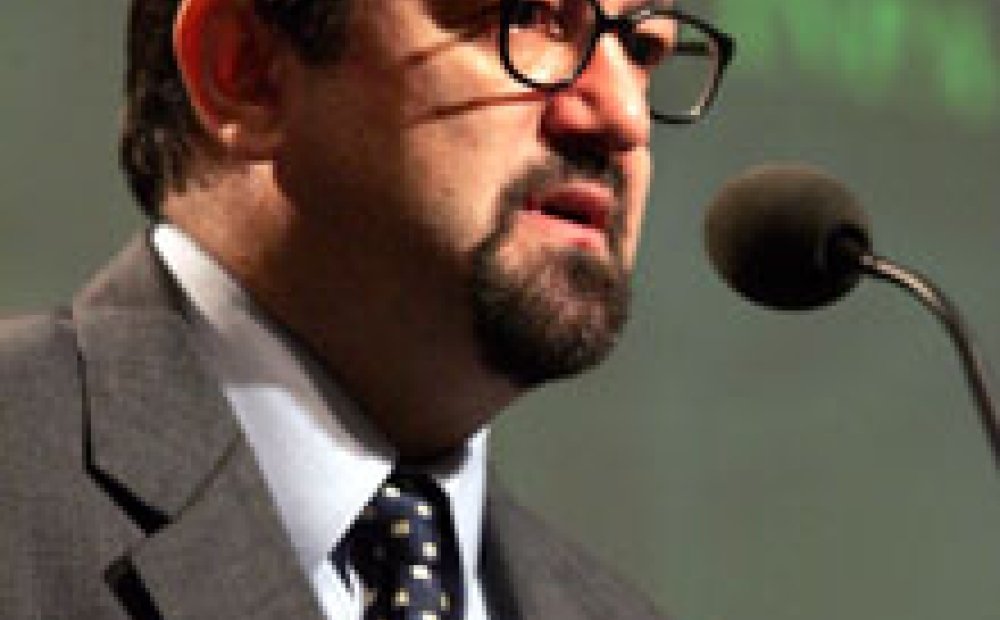Environment, Development and Sustainability:

According to Brazilian anthropologist and environmentalist Antonio Carlos S. Diegues, "The current models of production and consumption, determined by the developed countries, are not sustainable over the medium and long run: they are mainly based upon the use of non-renewable energies, environmental degradation and the inconsequent exploitation of human and natural resources of undeveloped countries."
The Instituto Nacional de Pesquisas da Amazônia (INPA) is working to change that dynamic by developing a plan for sustainable and responsible use of the Amazon's resources. On June 21, 2004, at a meeting cosponsored with the Wilson Center's Environmental Change and Security Project and The John Heinz III Center for Science, Economics and the Environment the Director of INPA José Antônio Alves Gomes discussed his organization's role in the progress of sustainable development in the Brazilian Amazon as well as his Institute's plans for the future.
The largest scientific research organization in the Amazon basin, INPA was created with the purpose of scientific examination of the environment and the conditions of life of Amazonia. Taking into account human welfare, culture, economics and national security, INPA's generates, promotes and disseminates scientific and technological knowledge for environmental conservation and the sustainable development of natural resources. Over five decades, it has assumed increasing responsibility in producing knowledge, establishing a compromise between sustainable development and environmental protection, and expansion of studies on biodiversity, forest and hydrological resources
Working with local communities to implement projects that make use of the Amazon's resources without depleting them, INPA has introduced goods from the Amazon including new food products, juices, cosmetics, pharmaceuticals, and various wood products. As an illustration of the balance between development and sustainability, Dr. Gomes explained that majority of the timber extracted for these projects was harvested from areas that were cleared for the construction of necessary access roadways.
INPA has ambitious plans to improve its administration, facilities and overall impact in the next three years. Dr. Gomes touted the need to expand doctoral study in the Amazon. While the region comprises more than 60% of Brazilian territory, only 4% of all environmental researchers studying Brazil work there. Gomes hopes to improve this figure by creating two more INPA graduate programs, inviting 60 Ph.D.s to conduct research at INPA facilities, and accepting 200 additional Ph.D and master's students to INPA programs. Thus far, INPA programs to draw researchers to the Amazon have been very successful: fully 68% of INPA graduates remain in the Amazon to conduct research.
Another INPA initiative is based in the Ducke Reserve in Manaus, a city that has been the site of intense deforestation and pollution. This reserve covers 100 km2 of tropical rainforest and is host to the largest training site for rainforest biodiversity in South America. Working in concert with all stakeholders, INPA has developed an integrated conservation and community development plan for the reserve and its surrounding areas. The plan presents interdependent lines of action including the creation and protection of buffer zones, infrastructure for training in biodiversity, environmental education, and peripheral community economic empowerment. Upon completion these initiatives, the Ducke Reserve will facilitate the work of scientific researchers, educate the public on sustainability through ecotourism programs, and provide economic opportunities to local communities.
While calling for foreign cooperation and participation, INPA is also moving cautiously, in particular to minimize the risk of exploitation inherent in opening the Amazon to international interests. Gomes concluded by reiterating INPA's objective increase the breadth of knowledge on Amazonian biodiversity, stressing the need for international collaboration in not only developing the economic potential of the region but conserving its resources as well.
Hosted By

Brazil Institute
The Brazil Institute—the only country-specific policy institution focused on Brazil in Washington—aims to deepen understanding of Brazil’s complex landscape and strengthen relations between Brazilian and US institutions across all sectors. Read more
